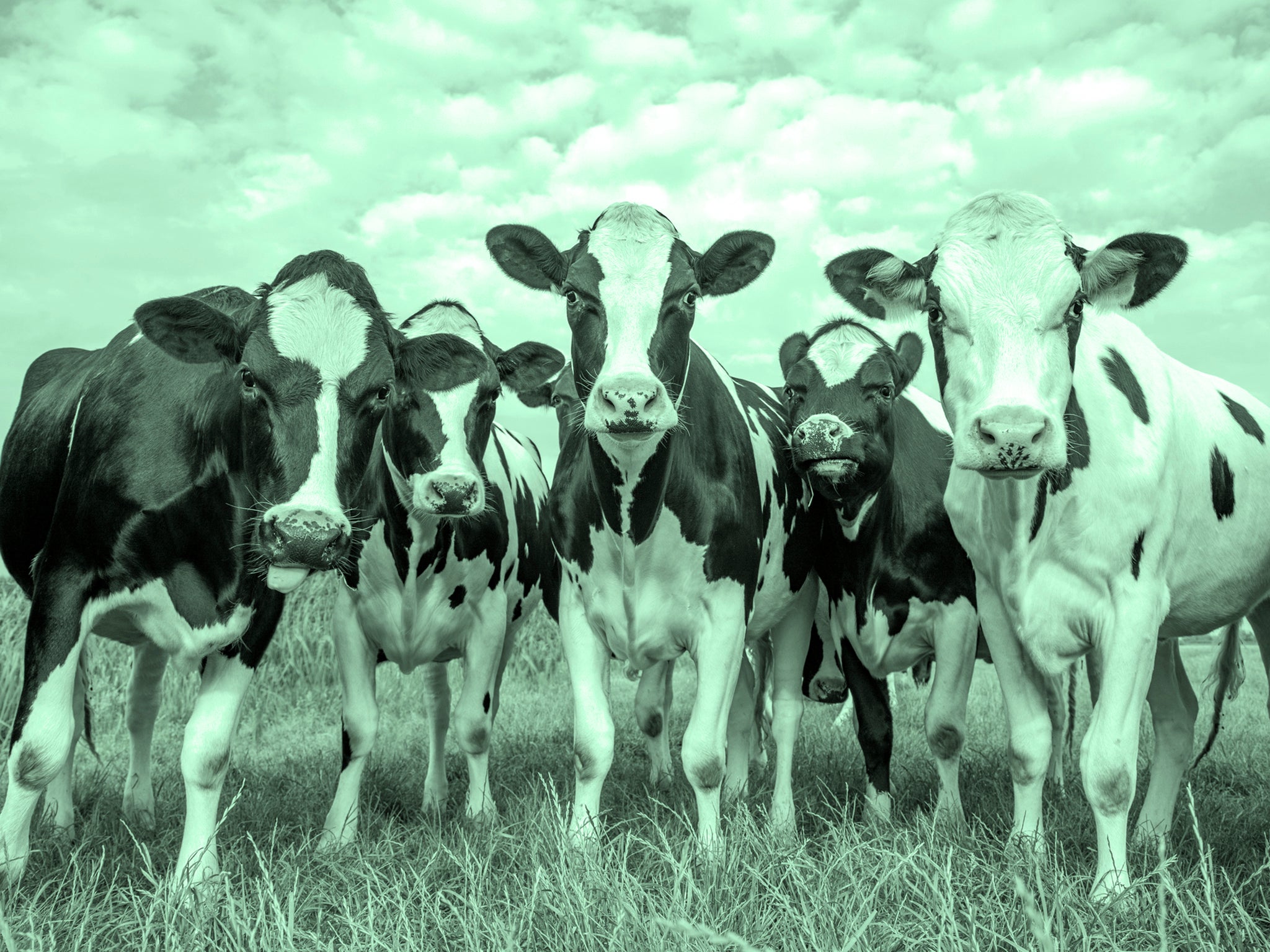British farmers are turning cow poo into cow power – in the form of AA-size ‘patteries’
1kg of cow poo can produce 3.75 kwh of electricity - enough energy to power a vacuum cleaner for five hours or 3.5 hours of ironing

Your support helps us to tell the story
From reproductive rights to climate change to Big Tech, The Independent is on the ground when the story is developing. Whether it's investigating the financials of Elon Musk's pro-Trump PAC or producing our latest documentary, 'The A Word', which shines a light on the American women fighting for reproductive rights, we know how important it is to parse out the facts from the messaging.
At such a critical moment in US history, we need reporters on the ground. Your donation allows us to keep sending journalists to speak to both sides of the story.
The Independent is trusted by Americans across the entire political spectrum. And unlike many other quality news outlets, we choose not to lock Americans out of our reporting and analysis with paywalls. We believe quality journalism should be available to everyone, paid for by those who can afford it.
Your support makes all the difference.A group of British farmers are turning cow poo into cow POWER – in the form of AA-size ‘patteries’.
The rechargeable ‘patteries’ could be one part of Britain’s renewable energy solution as 1kg of cow poo can produce 3.75 kwh of electricity.
This is enough energy to power a vacuum cleaner for five hours or 3.5 hours of ironing.
And dairy cooperative Arla, which developed the batteries with battery expert, GP Batteries, claim the energy created from the waste of a single cow could power three households for a year.
As a result, its 460,000-strong herd could fuel an ‘udderly amazing’ 1.2m UK homes.
Having a reliable and consistent source of power, like cow slurry, which Arla produces more than 1m tonnes of annually – could provide new opportunities to power homes and transport.
The slurry is turned into energy via a process called anaerobic digestion.
Arla farmer Neil Ridgway said: “There is so much potential for innovations such as anaerobic digestion to contribute to the UK’s renewable energy needs while reducing farm emissions with something readily available on our farms – poo.
“On my farm, we already use the energy produced from cow slurry to power our entire estate, but this could go so much further.
“We are even able to use the by-product of the process as a natural fertiliser on our land and thereby closing the loop – it’s a win-win situation.”
During the process of anaerobic digestion, organic matter such as animal waste is broken down to produce biogas and bio-fertiliser.
This process happens in the absence of oxygen in a sealed, oxygen-free tank called an anaerobic digester - the end product is biogas.
Once the biogas is cleaned, it is taken to a Combined Heat and Power (CHP) unit, where it is used to generate renewable energy.
The end product is nutrient-rich, reduced-emission, natural fertiliser, that can be put back on the land to help nourish the soil.
Graham Wilkinson, group agriculture director at Arla, added: “Arla is committed to sustainable farming and reducing emissions from food production.
“Our farmers are constantly exploring innovative solutions and following our poo-powered transport trials last year, it’s clear we have only just scratched the surface.
“Arla farms are home to around 460,000 cows that provide a steady source of slurry – in other words poo - that can be turned into power that has the potential to make a considerable contribution to Britain’s renewable energy quota.
“A small number of our farmer-owners are already turning cow poo into energy.
“If the Government and the energy industry could see the potential, the scaling up of cow power could be a game-changer for the UK’s renewable energy supply whilst also helping reduce emissions in farming.”
SWNS
Join our commenting forum
Join thought-provoking conversations, follow other Independent readers and see their replies
Comments